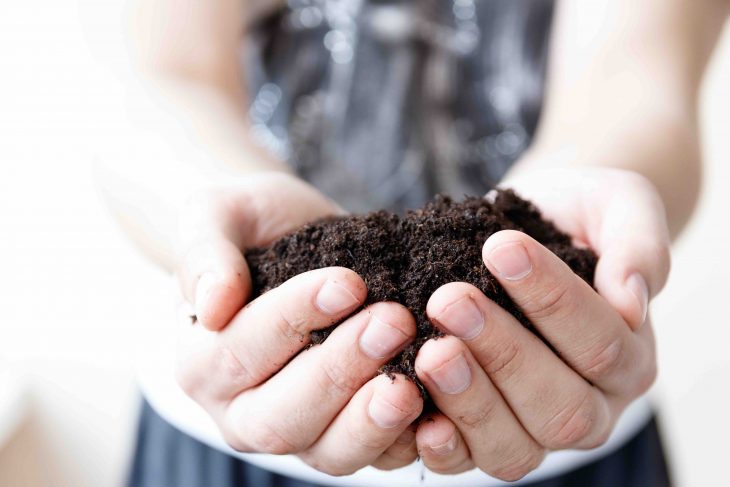
Composting is the process of converting organic waste into nutrient-rich compost, a valuable resource for enriching soils and promoting sustainable gardening practices. This natural recycling method not only reduces waste but also helps create a healthier environment. In this article, we’ll explore 18 fascinating facts about composting that will inspire you to embrace this environmentally friendly practice.
Nature’s Recycling System
Composting mimics nature’s recycling system by breaking down organic materials, such as food scraps, yard waste, and leaves, into nutrient-rich soil amendments.
Reduce Landfill Waste
Composting diverts organic waste from landfills, where it would otherwise contribute to greenhouse gas emissions and take up valuable space.
Nutrient-Rich Soil Amendment
The end product of composting, known as compost, is a dark, crumbly substance that improves soil structure and provides essential nutrients to plants.
Composting Benefits the Environment
Composting helps conserve water, reduces the need for chemical fertilizers, and promotes healthy soil ecosystems by supporting beneficial microorganisms and earthworms.
What Can Be Composted

Many organic materials can be composted, including fruit and vegetable scraps, coffee grounds, tea bags, yard trimmings, leaves, eggshells, and shredded paper.
Avoid Composting Meat and Dairy Products
While most organic materials can be composted, it’s best to avoid adding meat, dairy products, oily foods, and pet waste to your compost pile to prevent odor and attract pests.
Carbon-to-Nitrogen Ratio
Achieving the right balance of carbon-rich (browns) and nitrogen-rich (greens) materials is essential for successful composting. A ratio of roughly 3:1 browns to greens is ideal.
Methods
There are various composting methods to suit different needs and available space, including traditional backyard composting, vermicomposting (using worms), and composting in bins or tumblers.
Aerobic vs. Anaerobic Composting
Aerobic composting requires oxygen and promotes faster decomposition, while anaerobic composting occurs in oxygen-deprived conditions and is slower.
Compost Pile Maintenance
Regularly turning or mixing your compost pile helps aerate it, speed up decomposition, and prevent odors. It also helps distribute moisture and ensures even decomposition.
Composting in Small Spaces
If you have limited outdoor space, you can still compost using compact methods like vermicomposting with a worm bin or Bokashi composting, which uses microbes to ferment organic waste.
For Apartment Dwellers
Apartment dwellers can participate in composting through community composting programs or by using countertop compost bins that facilitate the decomposition of food scraps.
Composting Troubleshooting
Common composting challenges include odor, pests, and slow decomposition. Adjusting the carbon-to-nitrogen ratio, turning the pile regularly, and maintaining proper moisture levels can help address these issues.
Compost Tea
Compost tea is a liquid fertilizer made by steeping compost in water. It can be applied to plants as a foliar spray or soil drench to provide nutrients and beneficial microorganisms.
Creative Uses for Compost
Compost can be used in a variety of creative ways, such as potting soil, mulching, top-dressing lawns, or creating nutrient-rich tea for houseplants.
Composting Beyond the Garden

Composting extends beyond traditional gardening. It can be used in urban farming, community gardens, school projects, and sustainable agriculture practices.
Composting Around the World
Composting practices vary globally, with countries like Sweden leading the way in large-scale composting and innovative techniques like biogas production from organic waste.
Teaching Future Generations
Educating children about composting fosters an understanding of environmental stewardship and encourages sustainable practices from an early age.
Final Word
Embrace the art of natural recycling and join the composting movement. By composting, you contribute to the reduction of waste, enrich the soil, and promote sustainable practices that benefit both the environment and your garden. Start your composting journey today and witness the magic of turning organic waste into black gold.
Frequently Asked Questions
Can I compost in an apartment or a small space?
Yes, you can compost in an apartment or small space using methods like vermicomposting (with worms), Bokashi composting, or countertop compost bins designed for compact living.
What should not be composted?
Avoid composting meat, dairy products, oily foods, and pet waste, as they can attract pests and cause odor issues. Stick to plant-based materials like fruit and vegetable scraps, coffee grounds, and yard waste.
How long does composting take?
The time required for composting can vary depending on factors such as the composting method used, the materials used, and the environmental conditions. Generally, it can take several months to a year for compost to fully mature.
Can I compost paper and cardboard?
Yes, paper and cardboard can be composted. Shredded paper or cardboard serves as carbon-rich “brown” materials in the compost pile.
Can I use compost on indoor plants?
Yes, compost can be used on indoor plants. Mix compost with potting soil or create compost tea to provide nutrients to your houseplants.
Was this page helpful?
Our commitment to delivering trustworthy and engaging content is at the heart of what we do. Each fact on our site is contributed by real users like you, bringing a wealth of diverse insights and information. To ensure the highest standards of accuracy and reliability, our dedicated editors meticulously review each submission. This process guarantees that the facts we share are not only fascinating but also credible. Trust in our commitment to quality and authenticity as you explore and learn with us.
